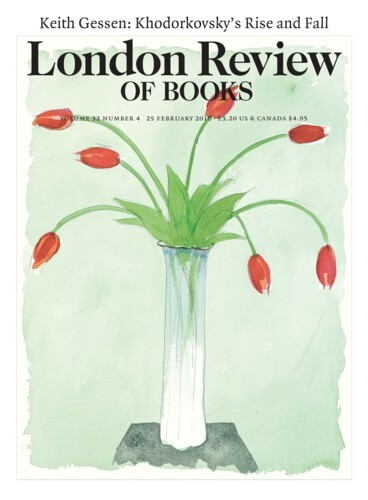Anyone might want to celebrate their life in print. Or a long-term relationship brought to a close by death. Lots of people write about their lives and their loved ones, and some pay to have their writing printed and distributed to their friends and relatives. It’s called vanity publishing, but it’s not very different from Antonia Fraser, say, going through her own diaries written daily during her 33-year relationship with Harold Pinter, and editing them with a few linking comments into a book published by Weidenfeld (£20). Obviously, there’s the matter of fame. Her publisher will not have charged Fraser a fee to have her book printed and distributed, because lots of people know about Harold Pinter, and others about Antonia Fraser, and many will pay to read an intimate account of their lives. I’m not entirely sure why. I don’t understand the national coverage of Fraser’s domestic diaries, but then I still haven’t got to the bottom of the attraction of celebrity biographies. Gossip, of course, is important, but Antonia Fraser is too much of a lady to gossip, rather than simply allow famous names to flutter gracefully onto each page. And although I quite see that loved ones, relatives, friends want to share memories, does it really matter to the majority of us who do not know them, how much Pinter and Fraser loved each other, or where they went on holiday? If I care about Pinter’s work then I want to read a serious consideration of it, not a titivated social diary from his wife, repeatedly calling him a genius, in case we or she had forgotten.
In an interview in Tatler, Fraser acknowledges that she ‘spent half my teens reading really heavy history books and the other half reading Barbara Cartland, God bless her’. Must You Go represents the Cartland legacy: a Campden Hill version of a celebrity romance. It’s an account of the apparently continuous mutual murmurings of love and contentment, with a light sprinkling of Harold announcing he’s had an idea for a play, padded out with some terrible poetry, mostly Pinter’s, about love and war.
Antonia Fraser is that kind of (I can think of no better word for her untroubled prose) fragrant literary person regularly at table with writerly gentry. At home and abroad she modulates Pinter’s political rants when they are too extreme with a discreet version of ‘now, now, Harold’. It’s all as light as helium, even the account of Pinter’s political declarations, which were always of the astonished variety, as if, having read or thought nothing on the subject previously, he woke up one morning and discovered that there was torture or tyranny occurring in the world beyond. Then he’d pronounce it a bad thing in a poem, a one-act play or a speech to the rest of us who were assumed to be entirely ignorant of such events. Sometimes he, Antonia and other fascinating famous people attend a lily-waving demonstration outside the wrong kind of embassy to bring his awareness to the notice of the entire world. His rage at corruption and the misuse of power was wholly admirable, but his sense of it as a brand new, unpleasant discovery was odd, I always thought.
Must You Go does enlighten (or astound) the reader somewhat on this front. The Campden Hill naivety seems to be not just genuine but remarkable in extent. In 1979, there was a strike at the National Theatre that caused trouble with a Simon Gray play Pinter was directing. Fraser writes: ‘“Union selfishness and violent behaviour at the National” was what convinced Harold to vote Tory in May. I too voted Tory but that was quite unashamedly in order to see a woman walk into No. 10. Neither of us knew much about Mrs Thatcher’s politics.’ She got her wish, Mrs Thatcher did walk through the door of No. 10, but ‘subsequently, Harold, by his own account, regretted his vote.’ The next paragraph continues her present-day overview of spring 1979, with an insight into the special kind of empathy that Antonia Fraser acquired over her years with Harold Pinter: ‘Although the children flourished, one of my cats – Rocky the rover – disappeared at the age of 18 months. I thought of what it must be like for the parents of “disappeared” children, as I listened for the sound of the cat-flap which did not come, and glimpsed the wrong cat at street corners.’
Send Letters To:
The Editor
London Review of Books,
28 Little Russell Street
London, WC1A 2HN
letters@lrb.co.uk
Please include name, address, and a telephone number.

